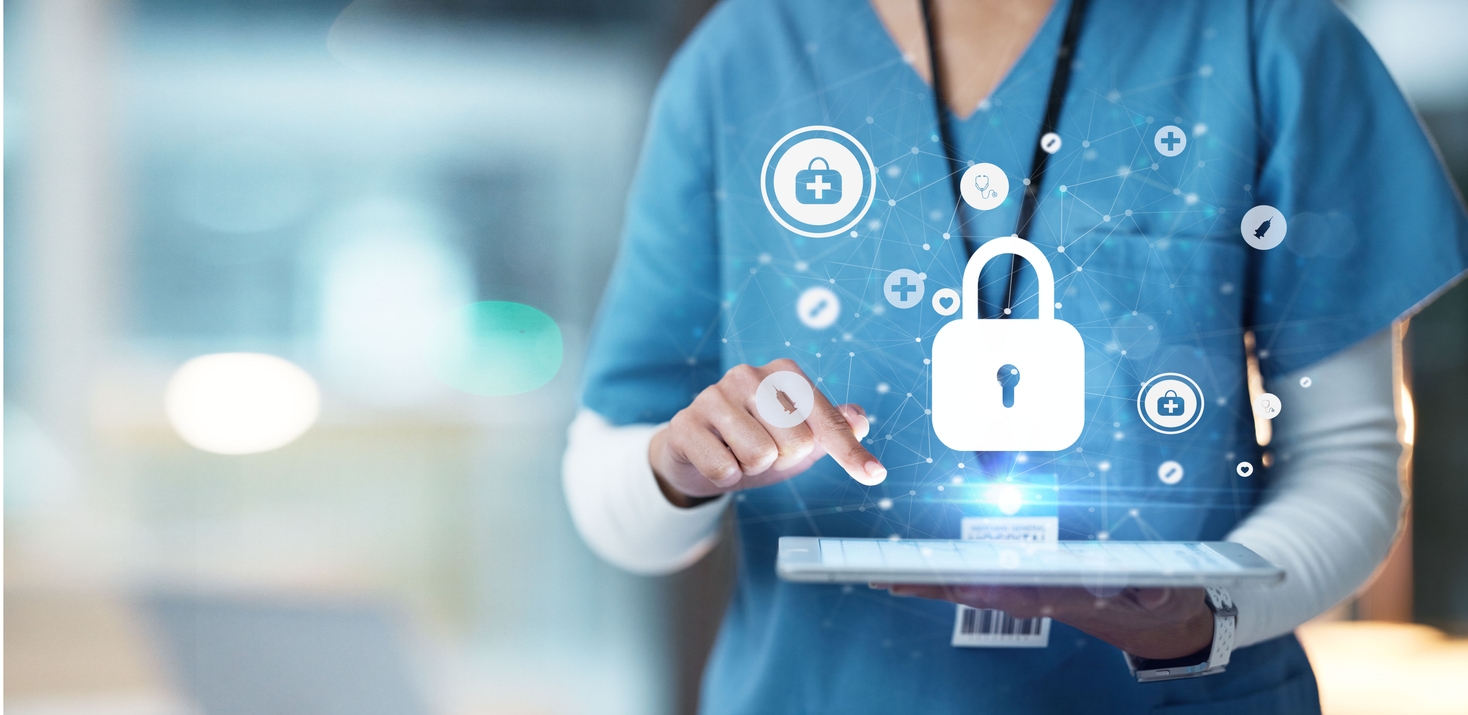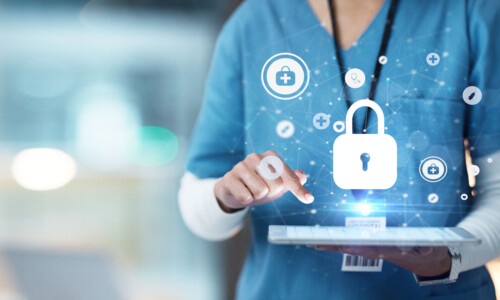
Cybersecurity in Healthcare: Protecting Patient Data
10 October 2025
Healthcare has become one of the most targeted sectors for cybercrime. With sensitive patient records, interconnected systems, and the increasing use of digital health platforms, the stakes have never been higher. A successful cyber-attack doesn’t just disrupt IT systems. It can delay treatments, compromise patient safety and damage public trust.
At ICT Solutions, we understand the unique challenges healthcare organisations face. That’s why we provide tailored IT support and cybersecurity solutions to keep healthcare providers secure, compliant, and resilient.
Why is it important?
Healthcare organisations hold some of the most valuable data available, including personal details, financial information and medical histories. According to the European Commission, cyberattacks on hospitals can directly endanger patients if critical systems are compromised. A ransomware attack, for example, could delay surgeries, disrupt prescriptions, or even shut down entire facilities.
In the UK, the NHS has recognised the urgency of strengthening cyber resilience. Initiatives like the NHS Cyber Security Operations Centre are designed to improve monitoring and response capabilities across the healthcare system. However, with attackers growing more sophisticated, individual organisations still need proactive measures to protect themselves.
Simply put, cybersecurity in healthcare is no longer just an IT issue, it’s a patient safety issue.
Types of attacks
The healthcare sector is under constant threat from a variety of cyberattacks. One of the most damaging is ransomware, where attackers encrypt critical systems or lock records until a ransom is paid. Such attacks can bring entire hospitals to a standstill, delaying vital treatments and compromising patient safety. Phishing campaigns are another frequent danger, with malicious emails designed to trick staff into revealing login credentials or downloading malware that can quickly spread through a network.
Insider threats also pose a risk, whether through deliberate misuse of access rights or simply through mistakes made by overworked employees. Meanwhile, Distributed Denial of Service (DDoS) attacks aim to overwhelm networks with traffic, taking essential systems offline when they are needed most. Data breaches remain a major concern too, as stolen patient records are highly valuable on the dark web and can be exploited for identity theft or fraud. Research shows that the cost of a healthcare data breach is higher per record than in any other industry. A stark reminder that the consequences extend far beyond financial loss.
Challenges to prevention
Defending healthcare organisations from these attacks is no simple task. Hospitals and clinics often rely on a patchwork of legacy systems alongside newer technologies, creating complex networks with hidden vulnerabilities. Many medical devices, such as MRI scanners or infusion pumps, were not originally designed with security in mind and can be exploited by attackers once connected to a hospital’s network.
Human error is another major factor. Busy clinicians and support staff may accidentally fall victim to phishing emails or reuse weak passwords, giving attackers an easy way in. Budget constraints add further difficulty, as organisations must stretch limited resources between cybersecurity and front-line care. Finally, strict compliance requirements such as GDPR increase the pressure, with the risk of substantial fines if sensitive patient data is not properly protected.
As the NHS has emphasised, addressing these challenges requires more than just technology. Building resilience means embedding cybersecurity into the culture of healthcare organisations, making it a shared responsibility across every department.
As the NHS has highlighted, staying ahead of attackers requires not just technology but also cultural change, embedding cybersecurity into day-to-day operations.
What ICT Solutions do to help
At ICT Solutions, we support healthcare providers with a comprehensive range of IT and cybersecurity services designed to address these challenges head-on. Our approach includes:
- 24/7 Monitoring and Threat Detection – Around-the-clock vigilance ensures threats are identified and neutralised before they escalate.
- Data Backup and Disaster Recovery – We create robust backup strategies to protect patient data and keep services running in the event of an attack.
- Endpoint and Network Security – From anti-malware protection to firewalls and secure configurations, we safeguard every access point.
- Staff Training and Awareness – We help educate healthcare workers to recognise phishing, social engineering, and other common threats.
- Compliance Support – Our team ensures IT systems meet NHS and GDPR standards, reducing the risk of fines and reputational damage.
- Scalable Support – Whether you need fully managed IT or co-managed services to supplement your internal team, ICT Solutions provides flexible options.
By combining technical expertise with proactive strategy, ICT Solutions helps healthcare providers protect their systems, safeguard patient data, and maintain the trust that is central to quality care.
Conclusion
The rise of cyber threats in healthcare is a reminder that patient safety and cybersecurity are inseparable. Ransomware attacks, phishing campaigns, and insider threats can cripple essential services if not properly managed.
Healthcare organisations don’t have to face these challenges alone. With ICT Solutions as a trusted partner, providers can stay resilient against evolving threats while focusing on what matters most. Delivering safe, high-quality patient care. Ready to protect your healthcare organisation from cyber threats? Contact ICT Solutions today



